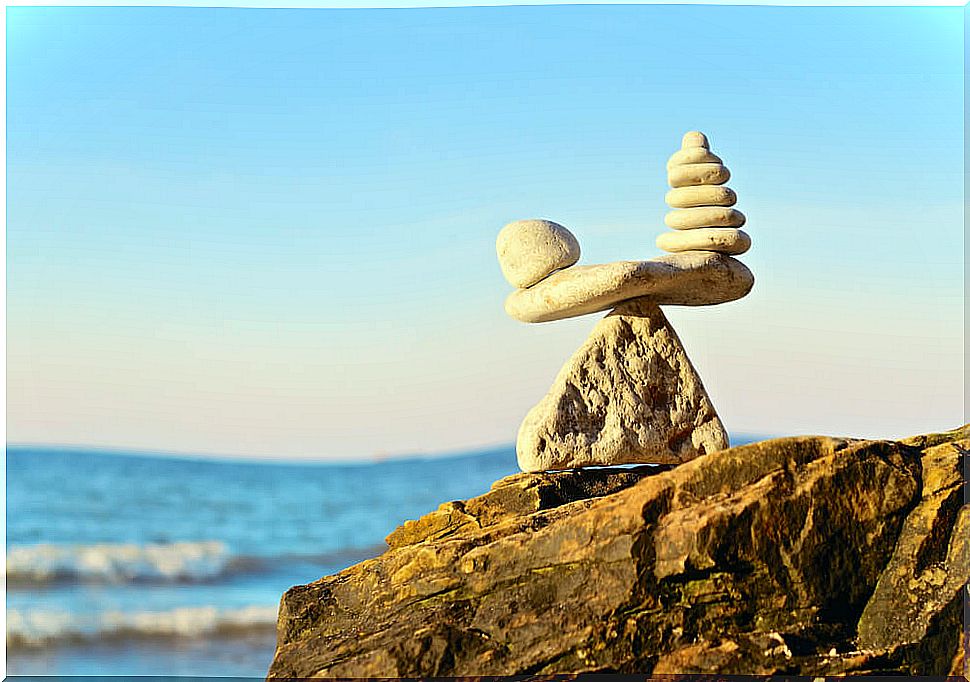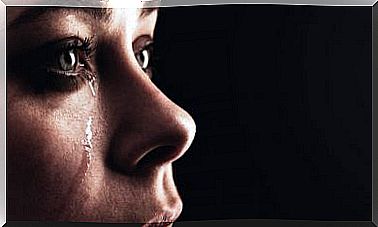Balance, Key To Good Mental Health

We all face different stressors, and what we react to them. Why do some people cope better with ups and downs and stress than others? One of the reasons for this may have to do with balance. Well, balance is the closest thing to what we know as true happiness.
Emotional balance helps us to balance different states of mind and to overcome extreme moments in which it seems that everything is falling apart compared to those in which we feel great happiness and well-being.
Balance does not come “standard”
But that balance we need does not come “standard”, neither physically nor emotionally. In the same way that our body oscillates when we learn to walk, in the same way that it suffers to hold us in difficult moments to overcome a physical obstacle, our mind also oscillates violently and has problems, sometimes too many, to keep emotions under control and not come down.
Thus, in the same way that we learn to walk, that we learn to go through a narrow bank, that we learn to ride a bicycle, we also have to learn to balance our minds. Painful falls come in the package; the important thing is to learn from them, analyze why and put the necessary measures in the next attempt.

Loving and consistent parenting seems to be an essential element in achieving good emotional balance. Rocking a newborn while crying helps the baby to regain control over his emotions, to feel more secure, or to help the child to explore his emotions, offering a counterpoint to his feelings and reacting in a constant and consistent way, helping him to develop a Consistent and balanced personality are some ways to help children in achieving their emotional balance.
But what if this is not the case? Some children live with distant and cold parents, who believe that crying will make them weaker and who do not care about feelings, and who treat them cruelly when they try to express their feelings or desires when they are out of “the right thing to do.” .
It is almost impossible to develop such a balanced personality. Even more so when that family lives in constant extremes, in which everything is wonderful or everything is horrible, without a middle ground. That imbalance can also apply to relationships: all or nothing.
In this sense, some theorists, such as Frank Putnam, have suggested that borderline personality disorder and dissociative disorders may be related to growth in families of this type, with the way in which babies’ emotions are treated being an ingredient fundamental in the coherent development of a stable personality.
We need balance in all areas of life
We need many different hormones and neurotransmitters to be in a state of biological and chemical balance. Imbalances can cause many metabolic disorders, as well as biologically based mental disorders. Also, our immune system has to be balanced to fight external invaders.
We also need a balance between excitement and calm. When there is too much emotion we seek relaxation and when life is too quiet we seek to give it a little excitement.

Loneliness and company must also be balanced, so that if we spend too much time alone we will seek the company of others, and if we have too many interactions with other people we will later seek the tranquility of our homes, or a getaway to have a quiet vacation.
We also have to balance work and play. This can be especially true for those who work helping others, who have to get personally involved, or who experience situations involving human drama.
When we experience stressful situations we also need to seek balance. For this, it is necessary to start by recognizing where this imbalance that causes us so much stress occurs in order to counteract it by avoiding swinging movements to the other extreme.









